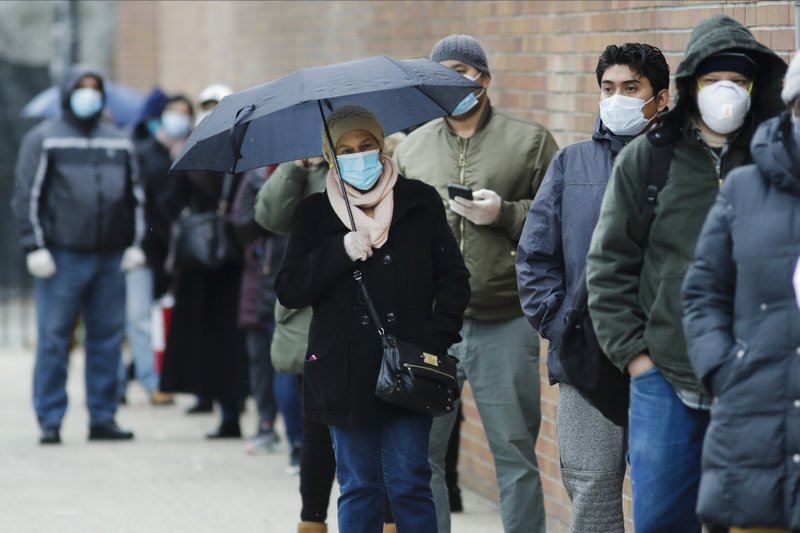Unemployment in the U.S. is swelling to levels last seen during the Great Depression of the 1930s, with 1 in 6 American workers thrown out of a job by the coronavirus.
More than 4.4 million laid-off workers applied for unemployment benefits last week, the government said Thursday. In all, roughly 26 million people — the population of the 10 biggest U.S. cities combined — have now filed for jobless aid in five weeks, an epic collapse that has raised the stakes in the debate over how and when to lift the state-ordered stay-at-home restrictions that have closed factories and other businesses from coast to coast.
A small, preliminary statewide survey of around 3,000 people found that 13.9% had antibodies suggesting they had been exposed, Gov. Andrew Cuomo said. Just in New York City, with a population of 8.6 million, Health Commissioner Oxiris Barbot said many as 1 million may have been exposed.
Abroad, there was mixed news about the epidemic. Some countries, including Greece, Bangladesh and Malaysia, announced extensions of their lockdowns. Vietnam, New Zealand and Croatia were among those moving to end or ease such measures.
In Africa, COVID-19 cases rose 43% in the past week to 26,000, according to John Nkengasong, director of the Africa Centers for Disease Control and Prevention. The figures underscored a recent warning from the World Health Organization that the virus could kill more than 300,000 people in Africa and push 30 million into desperate poverty.
Huge lines have formed at food banks from El Paso, Texas, to the Paris suburbs, and food shortages are hitting Africa especially hard.
The European Union has pledged 20 billion euros ($22 billion) to help vulnerable communities globally. EU leaders scheduled a virtual summit Thursday to take stock of the damage the crisis has inflicted on the bloc’s own citizens and to work out an economic rescue plan.
The coronavirus has killed over 184,000 people worldwide, including about 47,000 in the United States, according to a tally compiled by John Hopkins University from official government figures. The true numbers are almost certainly far higher.
In the U.S., the economic consequences of the shutdowns have sparked angry rallies in state capitals by protesters demanding that businesses reopen, and President Donald Trump has expressed impatience over the restrictions. Some governors have begun easing up despite warnings from health authorities that it may be too soon to do so without sparking new infections. In Georgia, gyms, hair salons and bowling alleys can reopen Friday. Texas has reopened its state parks.
Source: AP




